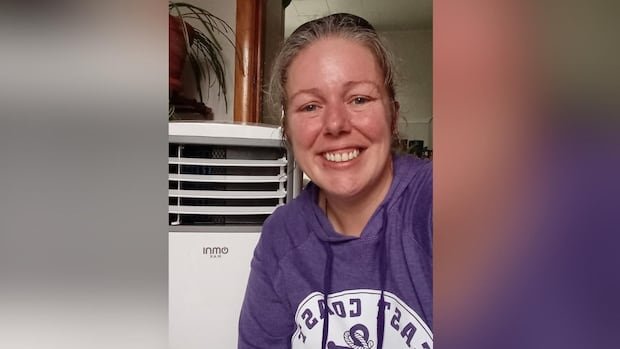A woman in Nova Scotia who relies on income assistance recently compelled the province to cover the cost of her air conditioner. Despite her success, she expressed disappointment that other low-income individuals in similar situations may not receive the same support.
Julie Leggett, residing in New Glasgow, N.S., secured funding for an air conditioner through an appeal last October due to health concerns exacerbated by heat. She emphasized that without the air conditioner she purchased the previous summer, her chronic pains would worsen.
While Leggett’s appeal was approved, it did not mandate the province to assist other low-income residents with health conditions that could be aggravated by high temperatures. She highlighted this issue during the provincial election campaign in November, advocating for policy changes to aid individuals during escalating heat waves.
Following the election, Progressive Conservative Leader Tim Houston, now the Premier, expressed willingness to consider including air conditioners as essential items covered by social assistance. However, the Department of Social Development recently stated that there are no imminent plans to alter the existing policy.
Leggett criticized this decision, asserting that it contradicts the Employment Support and Income Assistance Act’s objective of supporting essential health needs. She argued that neglecting the provision of cooling systems could lead to increased healthcare costs as illnesses worsen during heatwaves.
Opposition NDP member Lina Hamid echoed Leggett’s concerns, emphasizing the health risks posed by extreme heat to vulnerable populations. She urged the government to address this issue promptly to ensure public safety.
Jacqueline Wilson, a lawyer specializing in environmental law, emphasized the growing importance of cooling systems in Canada due to climate change. She stressed that access to air conditioning is not a luxury but a necessity for safeguarding people’s well-being.
In Ontario, individuals with disabilities or specific health conditions can receive provincial funding for air conditioners. Wilson’s organization is advocating for standardized cooling requirements to ensure equitable access during heatwaves.
The collaboration between various advocacy groups aims to establish cooling standards that landlords must adhere to during extreme heat conditions, promoting widespread access to cooling systems.
Ultimately, the call for policy changes to support low-income individuals with health issues during heatwaves continues amid growing concerns about the impact of rising temperatures on vulnerable populations.

